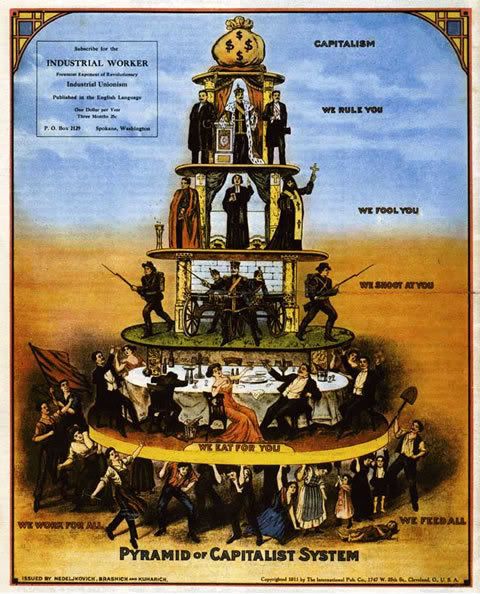
Both within the later-parts of the first volume of Capital and in other writings such as Grundrisse Karl Marx provides an overview of the origins and development of capitalist economy seemingly at odds with that most commonly ascribed to Marxist political philosophy.
Far from the common sense conception of Marxism expressing the simple reduction of "legal and political" structure of society to the "base" relations of production in a fairly mechanistic and automated fashion, these writings suggest a depth of historical understanding not easily evident by the accusations often leveled at Marx by his detractors.
While I’m not sure that Marx devoted huge tracts of writing on the precise nature of the developmental stages of abstract capitalism, those sections in which Marx does mention these processes are very illuminating. Marx notes in Grundrisse for example the ‘contradictory form’ of bourgeoisie society containing as it does relations “derived from earlier forms … in an entirely stunted form” [1].
Within the chapters ‘The origins of the Capitalist Farmer’ and the ‘Modern Theory of Colonalisation’ Marx appears to provide a proto-psychological basis for the advent of capitalist accumulation, noting that:
The advance of capitalist production develops a working class that by education, tradition and habit looks upon the requirements of that mode of production as self-evident natural laws [2]Marx talks of slavery as providing the embryonic basis of primitive accumulation before noting the exponential growth in ships employed in this trade, suggesting that (within America) the cotton industry provided the basis for “commercial exploitation”. Fermenting the “eternal natural laws” of capitalist accumulation [2]. The use of this term may well be an ironic dig at those that presume – as many continue to do so – that the laws of capital are unchangingly rigid expressions of eternal economic phenomena, upon which we may perhaps affix phrases such as that of “human nature”. Marx makes short thrift of such ideas by smashing the notion that features characteristic of capitalist economic relations, such as that of money, “wade through all economic relations” [1]. Noting the midwife of force inherent in tumultuous societal change, Capital nears its end with a closing remark on the blood and dirt the history of capital comes “dripping with from head to toe” [3].
[1] http://www.marxists.org/archive/marx/works/1857/grundrisse/ch01.htm
[2] http://www.marxists.org/archive/marx/works/1867-c1/ch31.htm
[3] http://www.marxists.org/archive/marx/works/1867-c1/ch31.htm#n15